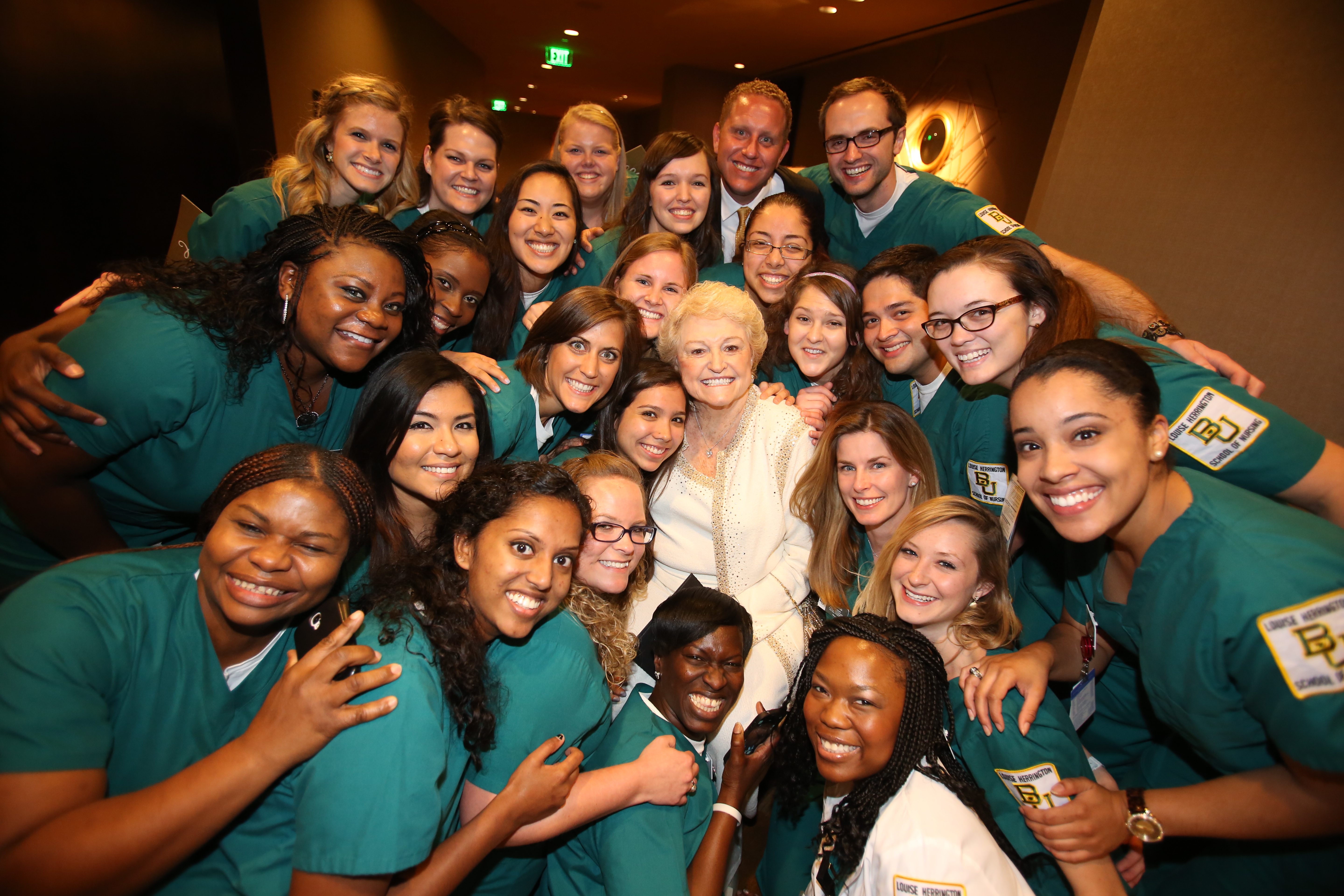Baylor University Louise Herrington School of Nursing New Psychiatric Mental Health Nurse Practitioner Track and Louise Herrington Endowed Chair in Mental Health

Supporting the efforts to fuel nursing education growth and help with the tremendous shortage of mental health providers here in Texas and the U.S., in August 2023, the Baylor University Louise Herrington School of Nursing (LHSON) will start a Psychiatric Mental Health Nurse Practitioner (PMHNP) track within its Doctor of Nursing Practice (DNP) graduate degree program. The LHSON aspires to become part of the solution to the national mental health crisis, and this track will prepare registered nurses to become PMHNPs to address the mental and behavioral needs of individuals and help solve the critical shortage of mental health care providers.
The LHSON is also grateful for the generosity of donors that provide sustaining support for the future success of this program track. Bolstering these effects, the school received a gift $1.5 million in November 2022 to establish the nursing school’s very first Endowed Chair position, named The Louise Herrington Endowed Chair in Mental Health. The purpose of this endowment is to attract, retain and support a distinguished faculty member to the LHSON who will further Baylor’s mission through innovative research and teaching that addresses the world’s most challenging topics in mental and behavioral health research, including the need for more mental health professionals. The Herrington Chair qualifies for matching support through the Give Light Campaign’s Illuminate Chair Matching Program, which supports the University’s efforts to generate high-impact research and scholarship, focusing especially upon research faculty chairs.
“The LHSON has a vision for becoming a leader in its field through interdisciplinary nursing education and practice,” said Dean Linda Plank, LHSON. “The Psychiatric Mental Health Nurse Practitioner Program will support these aspirations through bold and distinctive collaborations between academic disciplines and clinical partners to advance research and scholarship in mental and behavioral health and prepare students for success.”
The LHSON has numerous clinical partnerships with entities such as the Baylor University Medical Center, UT Southwestern, and other hospitals, and clinics where PMHNP students can complete their clinical training and collaborate with other health care providers. In addition, the LHSON has a state-of-the-art Simulation Center to provide evidenced-based education, practice, and skills to enhance interpersonal communication, data collection, and diagnostic reasoning. The LHSON will also partner with other schools on the Baylor University campus in Waco to work together to be a leading university to help provide solutions for the mental health crisis we face today.
The LHSON currently has seven tracks in its Doctor of Nursing Practice Program. Its Advanced Nurse Practitioner tracks use the same core curriculum but each track requires specialized courses. The PMHNP would include this same core curriculum, and the faculty for the PMHNP track would develop the specialized courses focused on educating Psychiatric Mental Health Nurse Practitioners.
The United States is experiencing a mental health crisis and the COVID-19 pandemic has brought the need for more and better mental health care to the attention of the public. According to current data, the pandemic will only serve to widen an already significant gap in mental health care access. Greater than 75% of all counties in the United States have an overall mental health worker shortage, with 96% of counties lacking a “mental health prescriber (ANPA, 2019). Areas without sufficient access to mental health professionals have been designated as “Health Professional Shortage Areas (HPSA) (KFF, 2020).” There are currently 5,733 such areas in the United States (KFF, 2020). As a result, nearly 120 million Americans are residing in mental health professional shortage areas (KFF, 2020). That number is comprised of 56% of adults and a staggering 80% of children who do not receive the mental health and substance abuse care they need. (APNA, 2019). It is estimated that an additional 6,464 practitioners are needed right at this moment to remove the HSPA designations specific to mental health.